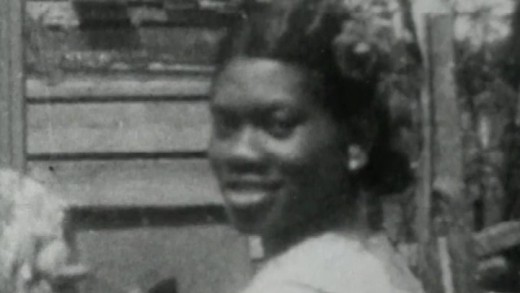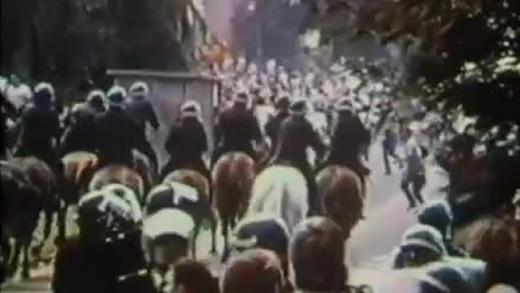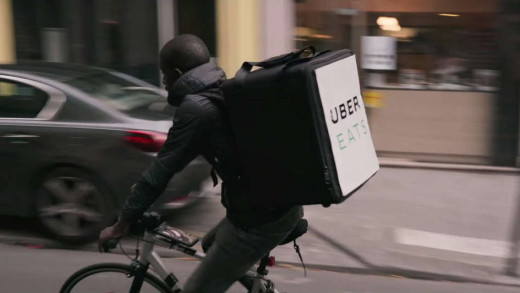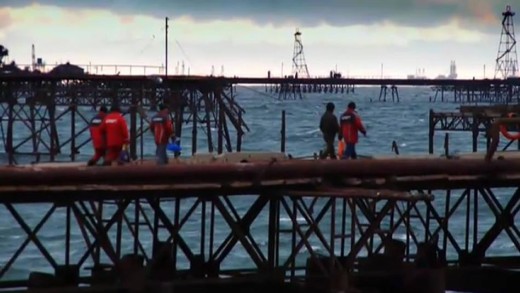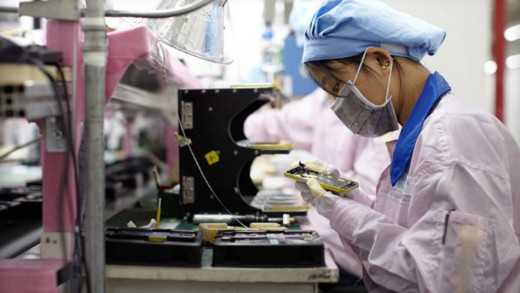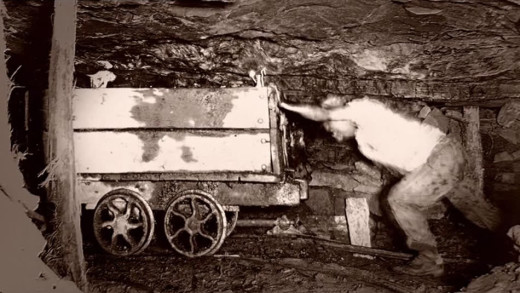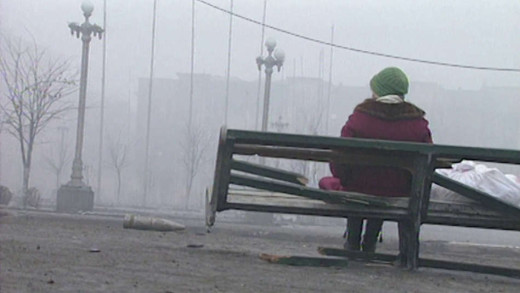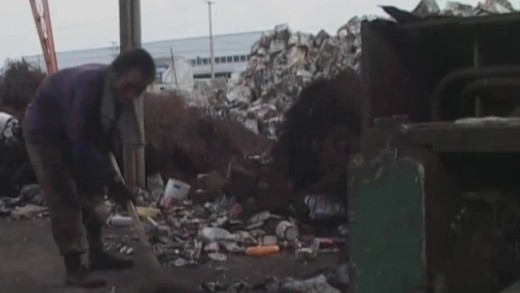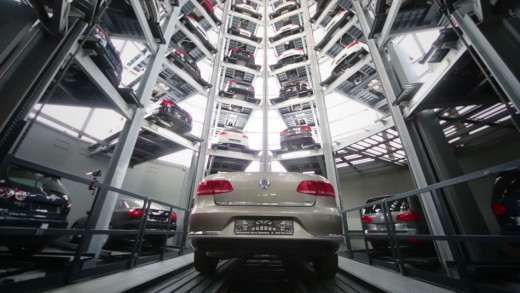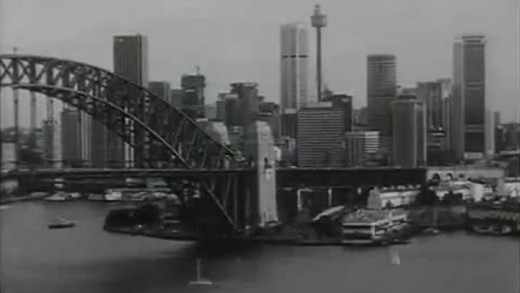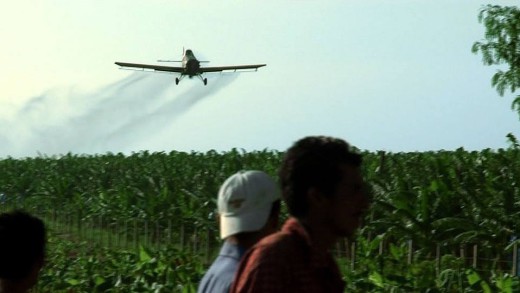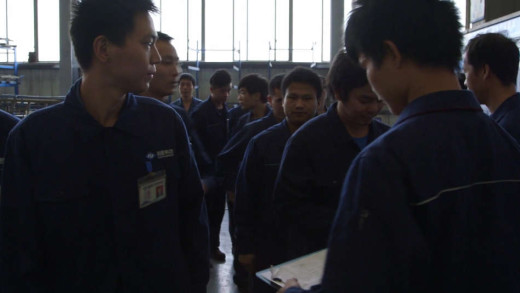Through a series of portraits that reach across different class, ethnic and generational experiences, The Double Burden speaks to the diversity of pains and pleasures of working motherhood. What is it like to grow up in a family where mothers have always worked outside the home? Through the lives of three families--one Mexican-American, one Polish-American, and one African-American--each with three generations of women who worked outside the home while also raising families, this film aims to instil tremendous respect for the accomplishments of women and for women of different races, social classes and life-styles through the generations, against social odds, pressures and expectations.
Orgreave in the North of England was the focal point for a mass protest by miners in June 1984. At this time, miners were angry over proposed pit closures and reacted by striking and pressuring other pits to close. The culmination of these protests was a mass gathering of miners from all over the country at Orgreave. On the morning of 18th June miners were escorted into Orgreave. At this point, police tactics already resembled a military campaign. After a push by the miners, the police acted with force, charging the pickets on horses. The protest soon turned violent with the police deploying dogs, batons and guns in an attempt to suppress the protest. The Battle for Orgreave interviews defendants directly about their experiences of Orgreave, and how those experiences changed their life...
Millions of people around the world are finding work by-the-job online. The "gig economy" is worth more than $5 trillion worldwide, and seemingly growing. But who are these workers? Seduced by the promise of independence, and control over their working hours and income, people around the world that are lured into the gig economy now face the harsh reality of it algorithmically-driven market place: dangerous working conditions, instability, and the precariousness of their work that can stop overnight in the case of deactivation or a bad review. Through committed characters, The Gig is Up shows that the so-called 'freedom' that is espoused by this technological economy is only an illusion.
Oil Rocks--otherwise known as Neft Daşları--is one of the first and largest offshore oil-platforms ever built. The location is a vast industrial city in the middle of the Caspian Sea, ordered by the Stalin regime in 1949. 60 years on, Oil Rocks is still operational and the first western film crew in its history receives access. The result is this film which documents 200 kilometers of bridges, thousands of oil workers, hundreds of platforms, up to nine-story buildings, a park and a sports field--nothing less then an oil-rig 'Atlantis.' By combining archive footage from the Soviet era and interviews with workers, this film tells the story of the oil fields and the extremely hard work by those involved to this day.
Filmed over 3 years, Complicit is an undercover investigation into the lives and conditions of workers that assemble iPhones, tablets, and other electronics in factories such as Foxconn in Shenzhen and Guangzhou, China. The film reveals the global economy's factory floors, showing the conditions under which China's youth have migrated by the millions in search of the espoused "better life" working for big corporations. But the reality is working long hours with toxic chemicals that cause many cumulative detrimental health conditions, including cancers. As such, a focal point of the story is Yi Yeting, who takes his fight against the global electronic industry from his hospital bed to the international stage. While battling his own work-induced leukemia, Yi Yeting teaches himself labour law in order to prepare a legal challenge against his former employers. As the struggle to defend the lives of millions of Chinese people from becoming terminally ill from work necessitates confrontation with some of the world’s largest corporations, including Apple and Samsung, Complicit turns to become a powerful portrait of courage and resistance against screens and rapacious corporate power in a toxic culture.
In 1929, in the face of collapsing demand for coal and a deepening economic crisis, mine owners in the Hunter Valley of New South Wales, Australia; announced, with the support of government, that they would cut miners' wages and strip them of their workers rights. When the workers refused to agree to these terms the mine owners locked the gates. 10,000 miners, pit boys and their families now found themselves without a job. What began as an dispute about industrial labour ended up overpowering a government, crippling an industry and besieging a community. This event challenged the rights of every Australian worker, and redefined the political and industrial landscape of a country that witnessed an event forever remembered as 'The Great Australian Lockout.'
Since the late 1980s, BBC news crews have filmed all across the Soviet Union and Russia, but only a tiny portion of their footage was ever used for news reports. The rest was left unseen on tapes in Moscow. Filmmaker Adam Curtis obtains these tapes and uses them to chronicle the collapse of the Soviet Union, the rise of capitalist Russia and its oligarchs, and the effects of this on Russian people of all levels of society, leading to the rise to power of Vladimir Putin, and today's invasions of Ukraine. The films take you from inside the Kremlin, to the frozen mining cities in the Arctic circle, to tiny villages of the vast steppes of Russia, and the strange wars fought in the mountains and forests of the Caucasus.
For more then twenty years, many hundreds of tons of electronic waste--or e-waste--from all around the world has been transported to an infamous Chinese town called Fengjang, just south of Shanghai, for disposal and so-called 'recycling.' Around 50,000 migrant workers constitute part of the massive workforce necessary to dispose of e-waste, with the downcycling component of the operations involving cutting, splitting, and salvage--most-often with rudimentary equipment. The workers toil endlessly to process almost 2 million tons of garbage every year, bearing incredible precariousness, and even putting in danger their own health due to the simply unacceptable working conditions and also the toxic characteristics of the metals, chemicals and materials they're handling. As the recognisable heaps of waste continue to pile up, Heavy Metal provides a moving image of a worldwide consumer society and the stark direct impacts of an 'invisible' waste.
The Truth About Killer Robots considers several cases where humans have been killed from interactions with automatic machines. From the Volkswagen factory in Germany, to workers in Chinese sweatshops assembling smartphones, to a bomb-carrying police droid in the United States, the film exposes this culture's fundamental fascination with machines, while illustrating the insatiable expansion of capitalism via automation and machine redundancy. Also explored are 'self-driving' cars; surveillance devices; humanless-stores, automated pizzas, robotic supermarkets and hotels; so-called 'sex' robots; and vast data gathering machines such as Facebook, which have subverted notions of real human interaction and intimacy. Told through the machine lens of engineers themselves, journalists and philosophers, the film attempts to go beyond the deaths of humans to reveal some of the ways that robots affect this culture in general. Not just by the displacement of labour, but fundamentally as humans of this culture adjust their lives to the rhythms of more and more machines, basic human faculties atrophy, and true connection to the real world and each other becomes more remote and strenuous, at precisely the same time where we need each other the most.
Rocking The Foundations recounts the history of the Green Bans introduced by the New South Wales Builders Labourers Federation in the 1970s which were a series of trade union strikes imposed on developers who wanted to demolish heritage buildings and sites of environmental significance in NSW. The workers saved bushland, trees, and numerous historical buildings which, to this day, remain a powerful symbol of how successful environmental campaigns and effective and honest trade unions can be run...
Shifty is a series of films that traverse the past 40 years in Britain, showing how the shift of political power to finance and hyper-individualism came together in powerful ways, to undermine one of the fundamental structures of mass democracy--the shared idea of what is real. As that fell apart, with it went the language and the ideas that people had turned to for the last 150 years to make sense of the world they lived in. As a result, life in Britain and the current and former colonies of its empire, has become strange--a hazy dream-like flux, where distrust in politicians keeps growing, and the political class seems to have lost control. Through archive footage, news reels, and on-screen-text in video essay format, Shifty documents the shapes of how this happened, using the vast ranges of footage to evoke what if felt like to live through an epic transformation during the 1980s.
Bananas!* documents the legal battle of banana plantation workers in Nicaragua against the Dole Food Company over cases of sterility caused by the pesticide DBCP. The chemical, despite being banned, was knowingly sprayed on crops and workers. The result is the same old battle with corporate power as the film unpacks the issues of the case and the lives of the workers through the local lawyer Juan Dominguez. Dominguez bridges the gap between the rapacious North American company and the South American workers who were not told about or protected from the pesticide, to make a claim against one of the largest corporations in the world for justice for its workers.
In post-industrial United States, the Chinese company Fuyao opens a car-glass factory in an abandoned General Motors plant, hiring thousands of blue-collar American and Chinese workers. Through an an observational format, American Factory presents the two distinct cultures, comparing and contrasting each other, as well as weaving subtle commentary revealed from the workers' themselves about the nature of manufacturing work; their differing cultural and generational attitudes on labour rights and unionising; as well as observing upper management methods and corporate politics. The film is a collage of self-revealing messages about the cultures of high-tech China and post-industrial United States, shown through the lens of capitalism and the changing status of each country in the global economy.
